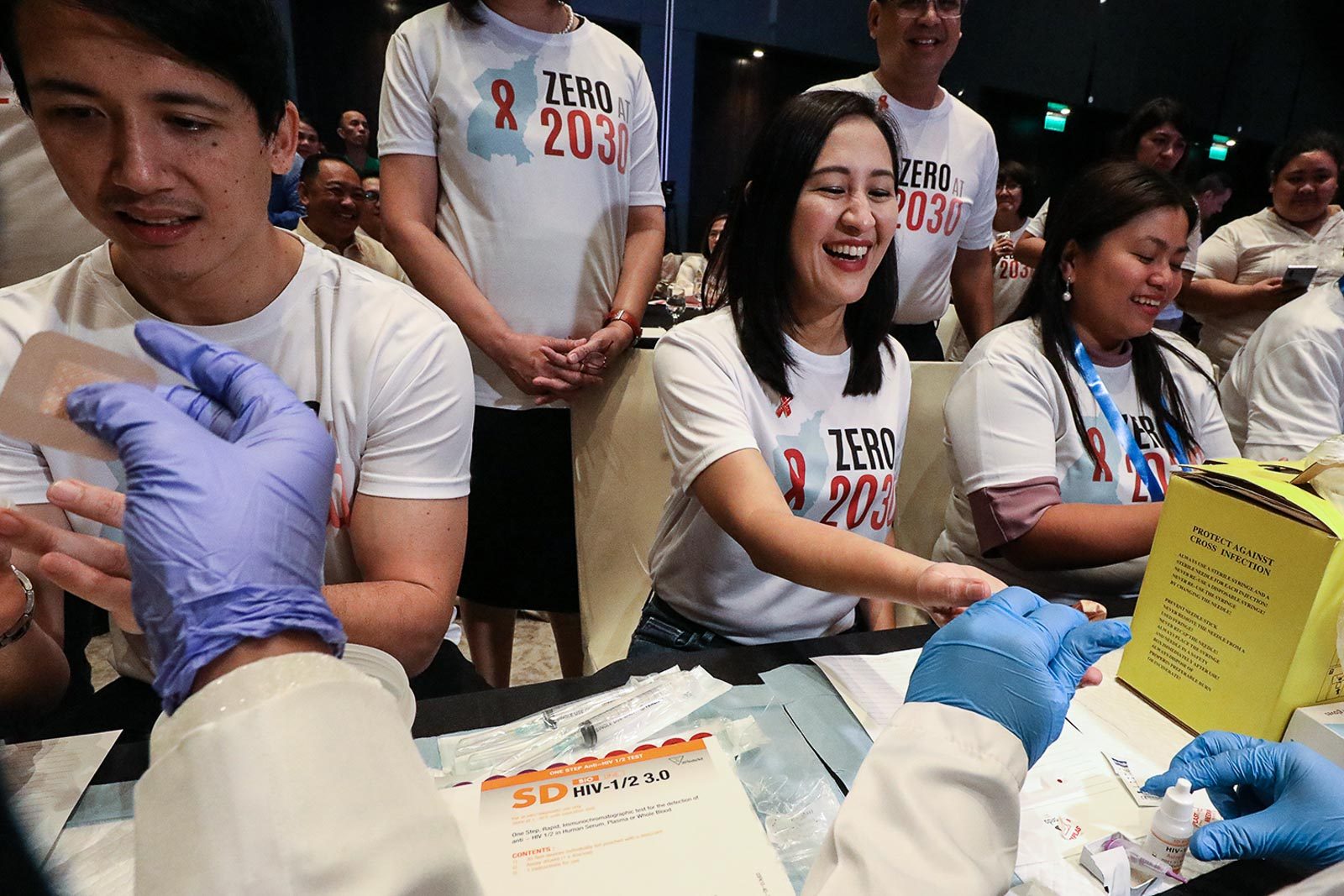SUMMARY
This is AI generated summarization, which may have errors. For context, always refer to the full article.

MANILA, Philippines – The Quezon City government launched a campaign dubbed Zero at 2030 to address the rising number of human immunodeficiency virus (HIV) cases in the country at the local level.
The Zero at 2030 program aims to attain zero new HIV cases by 2030, and has a 3-stage approach: prevention, control, and treatment.
The Quezon City Health Department recorded 505 new HIV cases from January to July 2019, with 77 new cases tallied in July alone.
Of these, 321 were transmitted through male-to-male sex, 116 through males having sex with both males and females, and 61 through male-female sex only.
According to STI/HIV program manager Dr Rolando Cruz, the high number of new HIV cases were due to high-risk sexual behavior and very low use of condom or protective behavior.
“The low knowledge of prevention of HIV and stigma and discrimination attached to HIV also contributed to the high number of fresh cases,” Cruz said in a statement.
The campaign targets to have 90% of local residents with HIV to be aware of their status, 90% of HIV-positive residents to get treatment, and 90% of HIV-positive residents on treatment to stay treated.
In this way, Quezon City Mayor Joy Belmonte said, they can attain their goal of zero new cases, zero HIV-related deaths, and zero discrimination by 2030.
On Monday, December 2, Belmonte, Quezon City Vice Mayor Gian Sotto, and city councilors got tested for HIV, in a move to encourage the public to have themselves checked.
The city government increases to P12 million the allocation for its HIV program in the 2020 budget for treatment and virus containment.
Belmonte also committed to make HIV testing available in all local health centers and hospitals in the city. She also said the local government would intensify its safe sex campaign, especially in the distribution of condoms.
“There are some colleges already that have committed to making condoms accessible to their students. And, definitely, like I’ve mentioned, in all of our health centers, we will make sure that condoms are accessible as well…. The important thing is to make it easy for people to access the tools that will help them prevent the disease,” Belmonte said in a media interview during the campaign launch.
In addition, more one-stop shops will be put up in District 3 and District 6, where residents can get tested and avail themselves of medicines. More health workers, peer outreach workers, and client-centered managers will also be employed to help people living with HIV.
Belmonte also plans to coordinate with the private sector to extend wellness services, and with academic institutions to boost the city’s sexuality education program.
“As early as 14 years old, may mga bata na na mayroon nang HIV. So kailangan talaga, magsimula tayo sa mga paaralan,” she said. (There are children as young as 14 years who already have HIV. So we need to start the campaign in schools.)
Quezon City is a partner of Fast-Track Cities, a network of over 300 municipalities and cities around the world that responds to HIV, among others.
Earlier, Belmonte spoke in a panel discussinon at the Fast-Track Cities 2019 Conference in London, where she discussed reaching out to marginalized people and providing HIV testing, free counseling, and other services to help them live with the disease. – Rappler.com
Add a comment
How does this make you feel?
There are no comments yet. Add your comment to start the conversation.